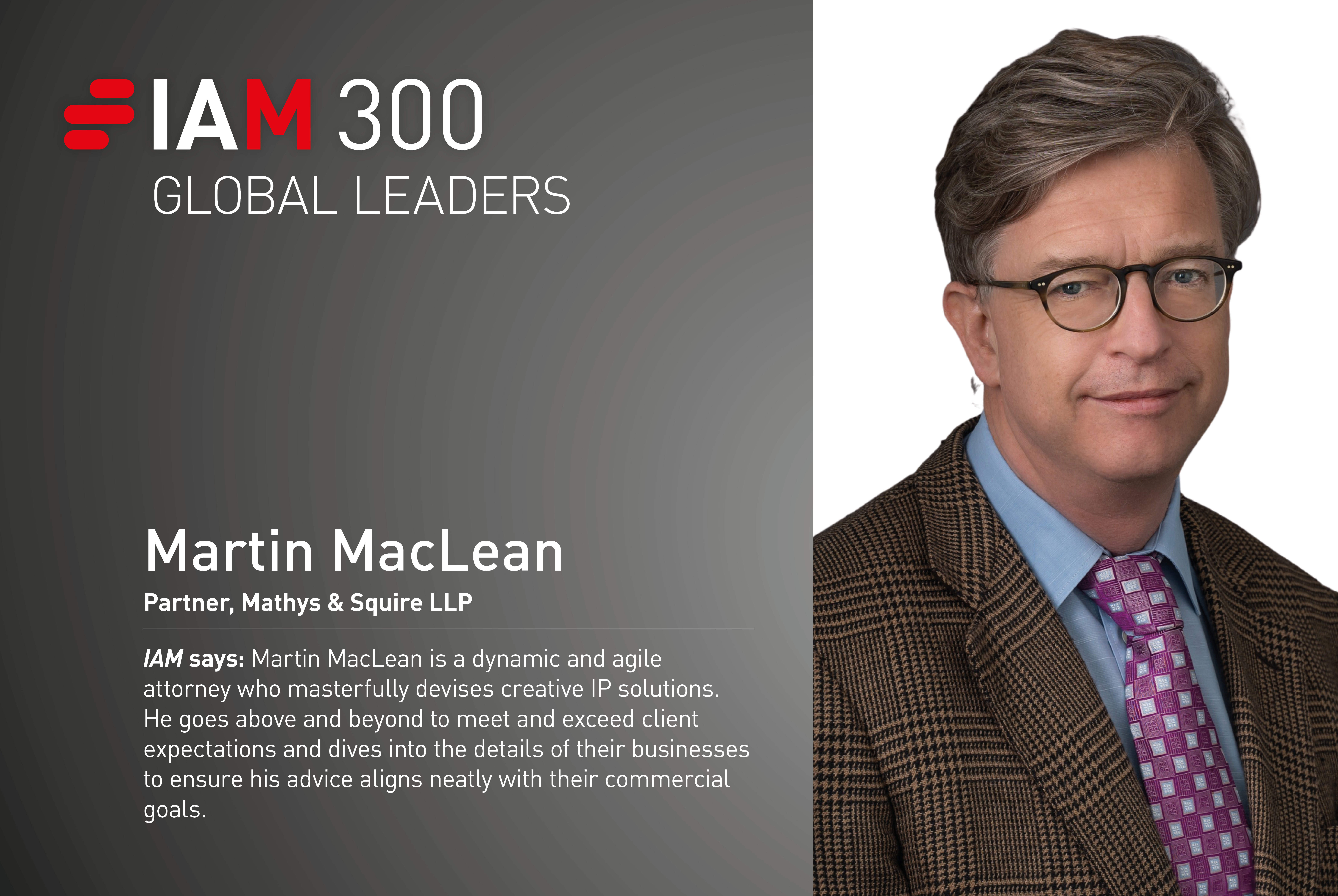Martin MacLean
As a partner at Mathys & Squire, what makes a strong patent team and how do you go about building one?
Assuming all essential clubs are already in the bag then, for me, the magic ingredient would be that of ‘inclusion’ (ie, remembering to take all team members with you). This requires an upfront willingness to listen carefully to all views expressed and to ensure that all receive fair consideration. Should diverging views arise, one must be prepared to find, typically at short notice, the necessary time to work through the underlying issues with the relevant team member(s) to a level of their satisfaction that is fair. For sure, without inclusion, one is unlikely to achieve even the sum of the parts of a team.
How has the rapid development of AI affected your work with clients in biotech?
AI has made a big splash in the biotech industry, especially where in silico considerations arise, for example in the context of predictive crystal structure modelling and epitope mapping, and predictive binding kinetics (eg, HLA: T-cells) for use in the manufacture of personalised cancer vaccines. When combined, these two fields have given rise to a whole host of new legal challenges, ranging from inventorship and entitlement issues, to the question of who or what should be considered the relevant skilled person. Does the inventive step threshold need to be lowered? Should all inventions in this hybrid field be assumed to be sufficient (ie, enabled)? From an operational perspective, I would say that our most visible response has been to actively select and combine the technical expertise of our relevant attorney teams working on these cases to ensure that the resulting bandwidth provides an excellent match with the subject matter of the invention.
You have conducted over 100 hearings before the EPO. What have these experiences taught you about Europe’s evolving patent landscape?
Always be respectful, be ready for the unexpected, and always assume that counsel for the other side is an experienced attorney.
Which recent decisions or legislative developments have had the biggest impact on IP strategy in the United Kingdom in the past few years?
Regeneron v Kymab – this Supreme Court Decision has helped to provide a much needed raising of the bar for inventive step assessment by excluding what, at the relevant filing date, was technically impossible subject matter and thus a fanciful claim scope. Inventive step will always involve a component of scale and the Supreme Court nailed this one.
What advice do you have for anyone looking to provide more and better services with a constrained budget?
Currently, at least, avoid anything and everything that involves AI. More seriously, get to know your client’s real needs and deliver on these. Ensure your client can see, in simple terms, how you have addressed a complex issue and why this adds value. Thereafter, budget discussions tend to be less strained, and often less restricted.
Martin MacLean
Partner
[email protected]
Martin MacLean works in Mathys & Squire’s life sciences team and has over 20 years’ IP experience, with particular expertise in patent portfolio management for corporations and government. His practice covers protein therapeutics, antibodies, vaccines, expression systems, diagnostic assays and environmentally friendly agrochemicals. Mr MacLean’s expertise is recognised in various directory rankings, including Band 1 in Chambers UK, a recommendation in The Legal 500 and rankings in the IAM Strategy 300 and IAM Patent 1000.
